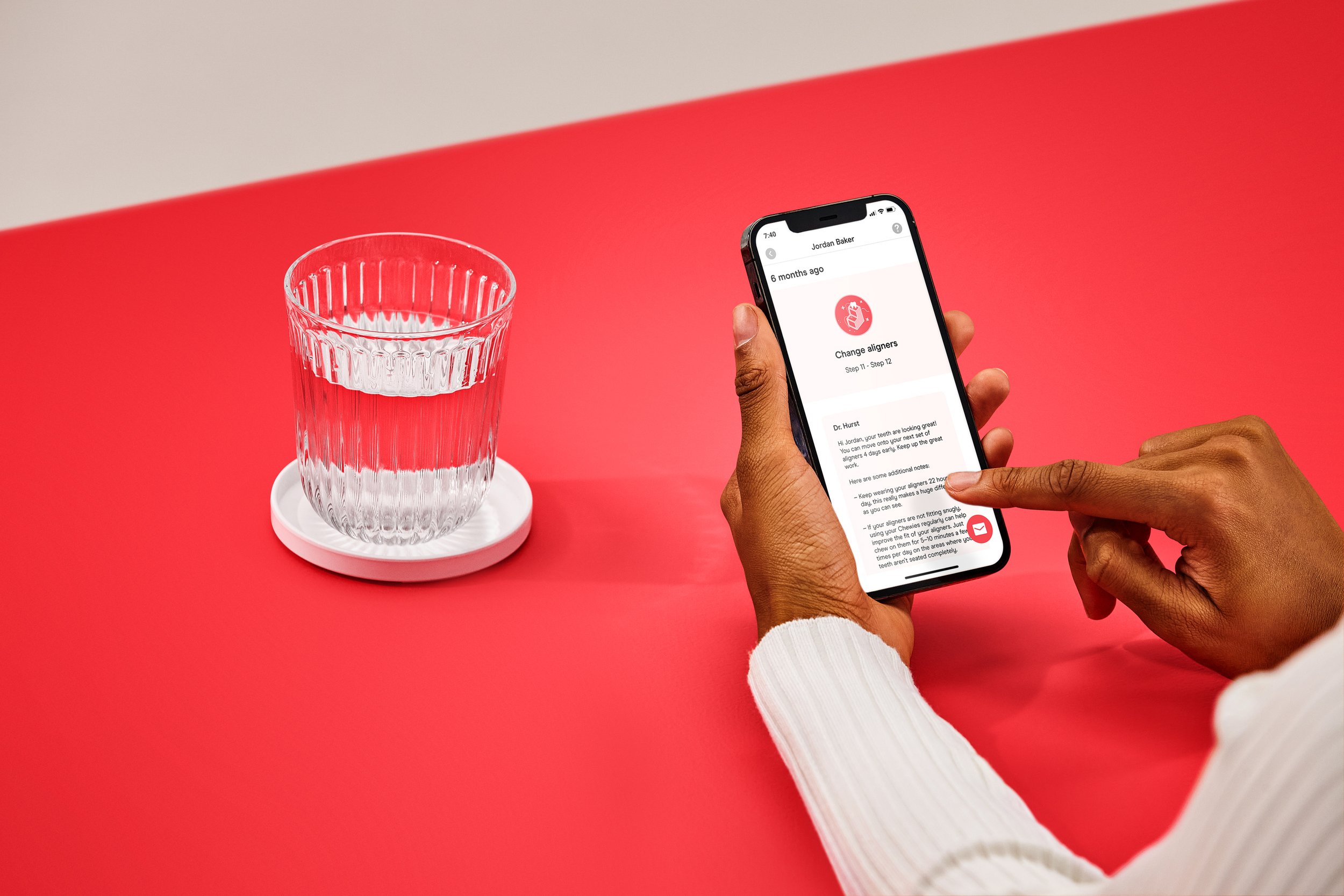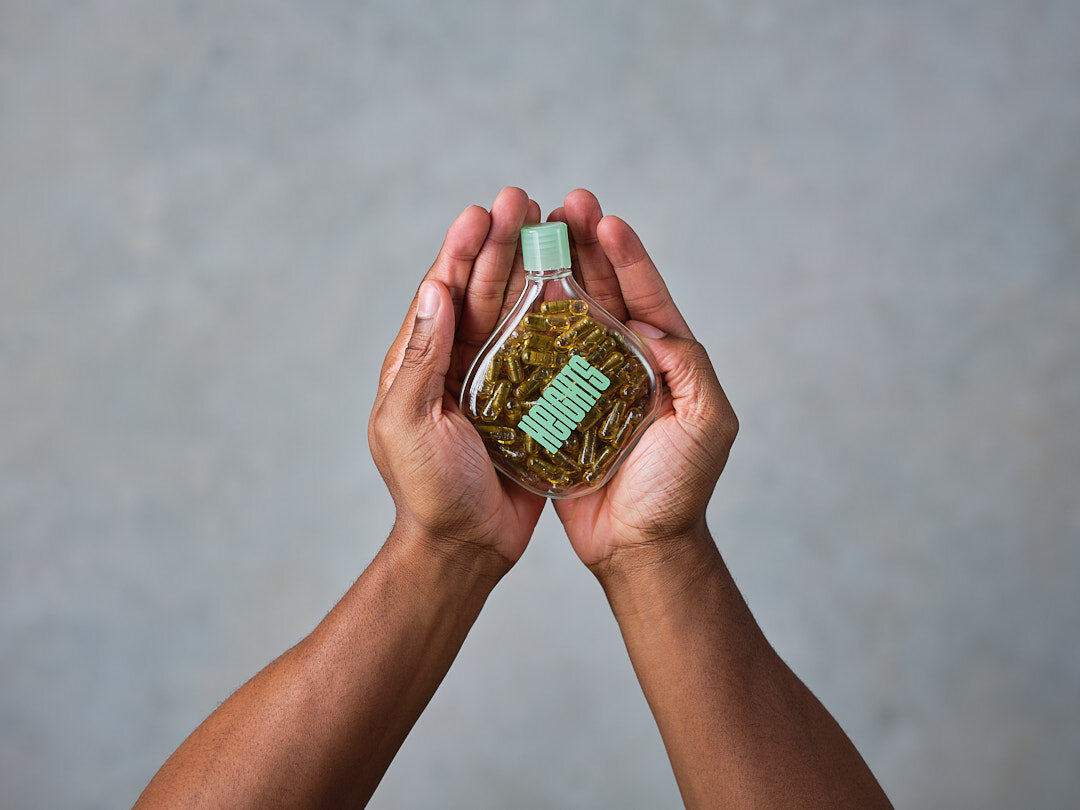CANDID, NICK GREENFIELD: The Perfect Smile
~65-75% of the global population suffer from malocclusion, or misaligned teeth, yet, each year only 15 million people seek orthodontic treatment12. For the vast majority of people, even in high-income countries like the US, most orthodontic treatment options are price prohibitive. Candid addresses this problem, reducing the price of orthodontic treatment with plastic aligners and a tech-forward platform.
~65-75% of the global population suffer from malocclusion or misaligned teeth, yet, each year only 15 million people seek orthodontic treatment. For the vast majority of people, even in high-income countries like the US, most orthodontic treatment options are price prohibitive. Candid addresses this problem, reducing the price of orthodontic treatment with plastic aligners and a tech-forward platform.
We had the pleasure of speaking with Candid Co-Founder Nick Greenfield on his launch into entrepreneurship, and ultimately, what led him to found Candid.
Nick Greenfield did not expect to become an entrepreneur. Raised in the DC area amidst the nation's political scene, he expected to go into diplomacy or politics. While pursuing his undergraduate degree at Stanford, the Financial Crisis struck. Nick witnessed as seemingly overnight the student body shifted from pursuing consulting and banking careers to tech and entrepreneurship - and Stanford transformed into the engineering powerhouse that it is today. He pursued a couple of internships at startups before beginning his first full-time role in 2011 at a startup called Zimride, which would go on to become the mega-ride sharing app - Lyft.
“This was foundationally the most important moment that helped inspire me to want to start a company”.
At Zimride, Nick, “experienced what it was [to build] a business from scratch”. As one of the first four employees, he helped to launch the app in 8 new markets. Outside of work he saw the technology ecosystem begin to build around him. At the time, he lived with some of the founding members of Snapchat, and often would have Snapchat company parties at this house. Inspired, he knew that he wanted to start a company. In college, Nick had explored starting two companies - a peanut butter company and a taco truck in Spain that sold baseball caps. By the time he started Candid, he had grown his list of ideas to nearly 50.
The Aha Moment
While he was full of ideas, he was hesitant to invest all of his discretionary income into just one - which one would he choose? The tipping point was when a friend came to him with an idea that would eventually become Candid. Nick’s ‘aha’ moment came in early 2017 when he discovered that the product (printed plastic teeth aligners) cost only a couple hundred to make, yet retailed to customers at $6000. Nick comments, I thought,” there's got to be a better way to do this. It was the real ‘aha’ moment for me.” Nick began to dig into the space to understand the costs, the treatment modality, and why it was so expensive.
“In terms of - this is the business we are supposed to be in - we've had a number of kind of breakthroughs...It took us a couple of years to figure out our voice and why we actually mattered in the world.”
Candid officially launched in 2017 as an orthodontist-directed alignment treatment for a malocclusion. The company was founded on the principles of accessibility, affordability, and driving low-cost patient outcomes, underpinned by software and technology. Since its launch, Candid’s core business and target customer group have expanded, as the business’s purpose and core differentiators have narrowed and become more clear.
Candid initially set out targeting brandy-savvy millennials, or the generation born between 1981 and 1996. After some time in the market, Candid shifted focus to a slightly older demographic after realizing that the $1,000 price point was an easier investment to make for those more established in their careers (i.e. older). The company has also expanded to target teenagers, specifically the parents of teens, who are looking for more affordable orthodontic solutions.
“We can tell the story about how great we are, but [a customer saying this] is the next level.”
Business growth and go-to-market strategy have been a learning experience as well. Over time, the team came to realize that the most powerful tool for expansion was the users of the platform themselves. As Nick puts it, “we can tell the story about how great we are, but [a customer saying this] is the next level”. Today, Candid has embedded these learnings and focuses on building the space to enable patients to create content and share their opinions. In addition, they have expanded their distribution channels beyond direct-to-consumer, to orthodontic/dental offices.
Today, Candid differentiates itself via patient care administration and the technology ecosystem that supports this. The company has been thoughtful about the end-to-end patient experience: from onboarding through payments. While a large part of their customer value proposition has been the ability to receive orthodontic services directly from home - patients can complete their initial appointment at home or in one of Candid’s offices - whatever is more convenient and comfortable to them.
On the provider side, Candid offers a robust platform for orthodontists to see and manage their patients. They have built their own internal patient management system (called “tooth tools”), as well as a doctor-patient communication platform. For payments, realizing the complexity and burden of managing payments in the current healthcare system, Candid set up their own virtual Dental Service Organizations (DSOs) across states. DSOs contract with dental offices to administer non-clinical operations and provide business support4. Orthodontists on the platform benefit from the ability to see more patients without the overhead of maintaining their own practice.
“Getting it wrong, so you can get it right is critical. You will consistently fail until you figure it out.”
Any new business is not without its challenges. Candid entered healthcare, a highly regulated and convoluted industry in the US. They were not simply selling a product or “widget”, as Nick puts it, that invoked immediate satisfaction; a deeper understanding of industry dynamics, as well as the patient experience, was required in order to develop a novel product that added value to people’s lives. Though Nick states that there are constant challenges, which serve as learning opportunities to continue to grow and refine the business, he mentions that two key challenges were disentangling this complex system and gaining a deeper understanding of the patient experience. The average duration of Candid treatment is 9 months, so waiting for a complete patient cycle to complete and get feedback on took time.
The Advice
For aspiring (and current) entrepreneurs, Nick recommends the following tips for scaling:
Always perform reference checks, particularly for senior roles. As Nick mentions, “an interview is a snippet in time, there is only so much you can determine,”. You can, “learn a lot from references beyond the interview process.”
Be incredibly aggressive with your network, and ask people for help, but methodical and pointed in your asks. This is key to being able to scale your business.
For reads, Nick recommends The Hard Thing About Hard Things and subscribing to the newsletter Category Pirates, dedicated to helping entrepreneurs better understand how to dominate a space, and make it their own to scale to success.
Since our interview with Nick, Candid launched whitening as a stand-alone treatment in partnership with Phillips in November. Previously, only found in a dentist’s office - the launch marks the first time that Phillips (the #1 requested whitening solution) is offering an at-home option for consumers. Interested in being more confident in that smile (and for the right price)? Checkout Candid.
Photo courtesy of Candid.
Written by Simmone Seymour.
HEIGHTS, DAN MURRAY-SERTER: Supplements for Brain Care
Our brain impacts how we think, feel, and ultimately, how we show up every single day. Research shows that proper nutrition can significantly impact your memory, ability to concentrate, and can even reduce the chances of developing mood disorders or having a stroke! Yet, 99% of people do not get the proper nutrition they need to nourish their brains and perform at their full potential. Heights, launched with the vision of helping people to reach their full potential through “Brain care” - the actions and behaviors that contribute to a healthy brain.
Our brain impacts how we think, feel, and ultimately, how we show up every single day. Research shows that proper nutrition can significantly impact your memory, ability to concentrate, and can even reduce the chances of developing mood disorders or having a stroke! Yet, 99% of people do not get the proper nutrition they need to nourish their brains and perform at their full potential. Heights, launched with the vision of helping people to reach their full potential through “Brain care” - the actions and behaviors that contribute to a healthy brain.
The startup community is small, very small. Through a slack channel, and raving reviews, we were able to get connected to Dan Murray-Serter, the co-founder of Heights to chat about all things cognitive. This playdate took place via Zoom, while Dan worked from his shed in his garden in the UK.
“We want to create a brand that is about an uplifting attitude - all we do and communicate is about reaching your heights from whatever station in life you are at right now.”
Co-founder Dan Murray-Serter above.
Heights co-founder Dan Murray-Serter seems to have been born into entrepreneurship, though he is hesitant to admit it - “my dad was a businessman..different than an entrepreneur. He would find that term incredibly irritating”. Dan’s father manufactured clothing for different brands, leading Dan to spend time working in his factories as a teenager. His more formal entrepreneurial career was launched at 13, when he competed in the UK’s Young Enterprise competition with his business creating children’s parties, channeling his love of live events - something that would stick with him as he launched the community-oriented brand - the Heights.
In his early 20’s, Dan worked in advertising and, as an enterprising individual, ended up running his own agency. He would go on to launch five other businesses - two of which are active today. Dan comments that he had “quite a lot of failures,” but was able to learn, “quite a lot of hard lessons” that he carried with him along the way. Yet, he never imagined that he would enter the nutrition or supplement space:
“I never thought I would do anything like [Heights]. I was never interested in supplements particularly, but was always interested in mental health.”
The Aha Moment
Heights was launched after Dan experienced a bad bout of insomnia that persisted despite his experimentation with many remedies. As Dan describes, “ [my insomnia] carried on and I [began to have] really bad panic attacks and anxiety. I tried medications.. therapy, sleep therapy, alcohol, no alcohol, weed, meditation...then I went to a dietician and she prescribed me supplements. I slept like a baby within 6 days.” This illuminated to him that many people were trying to cure conditions with psychological interventions, where a physiological intervention might be a better fit.
Dan was intrigued but did not know the exact solution he wanted to launch. He and co-founder, Joel Freeman, played around with more than 50 ideas before coming to Heights. As serial founders, they leveraged their networks to learn more about the industry and validate their ideas, before landing on a supplement to promote brain health - Heights was born.
The name, Heights, mirrors the vision and mission of the company: to create an uplifting environment to educate consumers on how best to take care of their brains and enable them to reach the height of their abilities.
“If someone told me to take supplements I would not believe them. So I was like how does a skeptic access this type of information - well through science! So I started a newsletter on what science says you can do to take care of your brain.”
Heights launched its first product, the ‘smart supplement’ in January 2020. The daily supplement is packed with brain-enriching ingredients like Vitamin D, amino acids, and complete B-complex. The intention of the product is to promote brain health via benefits such as achieving sharper focus, improving sleep, and elevating mood and overall well-being. It is available via subscription on their website for between $40-$53/month, and ships to countries around the world.
Entering the supplement industry riddled with unvalidated claims and skepticism, Heights has stood out via their focus on establishing trust within their community by ensuring the effectiveness and usability of their product. For the initial product, ingredients were sourced from around the world to ensure that they complied with B-corp regulations and leveraged the highest quality nutrients. Blood trials were conducted on consumers who took the developed supplement to ensure that the ingredients were having the intended impact. In addition, they applied human-centered design principles to the development of the product and its consumption. After conducting research, they identified that people often do not take supplements regularly because they are made to be stored in cabinets and are often forgotten about. To counteract this they designed translucent and aesthetically pleasing packaging to encourage consumers to store the supplement outside of the confines of dark cabinets. Talk about being creative!
Taking a page from their playbook as tech founders, co-founders Dan and Joel Freeman, chose to focus on retention and community building as core KPIs to grow their business. Prior to launching their first product in 2020, they first set out to build a community centered around “brain care”. Dan, noticing the high amount of skepticism when it came to leveraging nutrition to improve mental health (and somewhat of a skeptic himself) started reading research papers on the topic. He encapsulated his findings in a fun, digestible newsletter that he launched in 2018. The newsletter served to gain an initial following, to validate the products that they were considering for development, and serves as a focal point of their “brain care” community today.
It has since grown to a 75K reader following. Heights has further built out its marketing channels by launching an in-house podcast. The podcast consists of short and easily digestible nuggets of information about brain care and brain health. Participants are encouraged to take a questionnaire that then feeds them content based on their tailored needs and interests. This personalized approach to email marketing and content creation allows Heights to build a strong following and create value in a crowded market.
“It is really easy to make a supplement company, but it is very hard to make high-quality ones because you need a lot of money to do it and there are not many people that you can work with in the world”.
The Challenges
While Dan and Joel, make the path to launch and build a nutrition-focused startup easy, the road has not been without its hurdles. The product development process is long and complex. It took them ~2 years before they were ready with their first product, which required identifying ingredients that were effective and also ensuring they were safe for consumption and compliant with regulations. Generally a very expensive process, the pair raised a pre-seed round of almost $1M to make this possible and brought on industry experts to ensure that they were truly science-backed. The Heights’ product is continually upgraded to ensure that it contains the highest quality and most effective ingredients - regularly changing the formulation every three months. Co-founders Joel and Dan believe this arduous process to be completely necessary to win over consumer’s trust, particularly in the supplement industry, where mistrust and unfound claims run rampant.
The Advice
“We are serial founders, so we started the company with values before we had a company.” We asked Dan for his advice when launching a D2C supplement company. Given the saturation of the market, Dan recommends the following:
Identify what values are going to be important to your business. When you do this the right way, it is time-saving. It makes it easier to make everyday decisions and ensures that the right decisions are being made throughout the organization when you are not around.
Use a lead magnet process to grow your following, specifically for newsletters. Facebook and Instagram are great channels for this.
Two must-read books: Beyond Entrepreneurship and Good to Great by Jim Collins and The Source, by Dr. Tara Swart.
Interested in improving your cognitive function and diving deep into the science of brain health? Visit Heights here and mention code: “Radiche” for a 10% discount.
Photo courtesy of Heights.
Written by Simmone Seymour.
Simmone is a member of BLK VC, an organization that aims to increase the number of Black Venture Capitalists. A retail and consumer goods enthusiast, she works in Strategy at Nordstrom and writes about the topic for StartU, Radiche, and on her Medium page. You can follow her on Twitter @SeymourSimmone.














